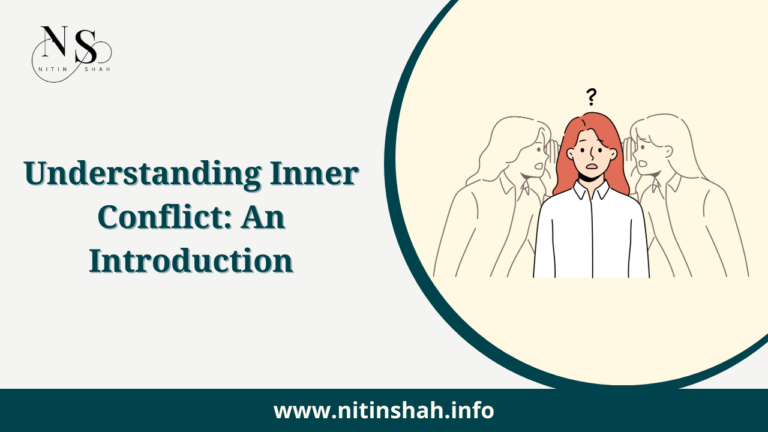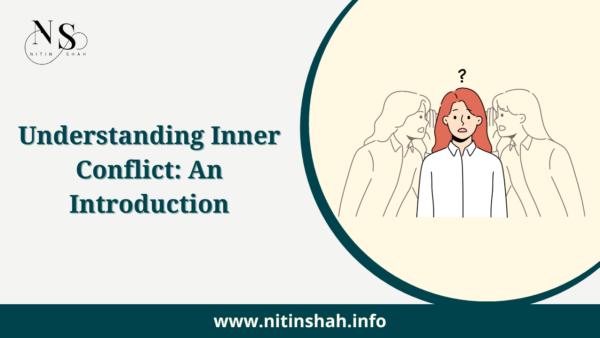Have you ever felt like you’re in a tug-of-war with yourself?
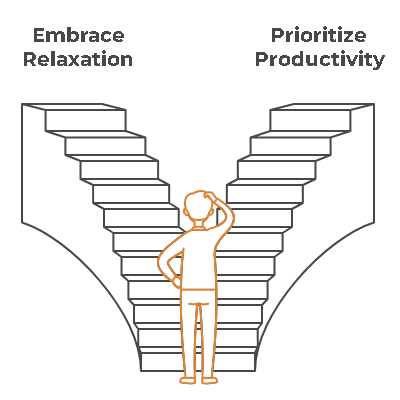
One part of you desperately wants to relax and take a break, while another part feels guilty for not being productive. This universal feeling of being torn between two opposing forces is known as inner conflict. It’s a fundamental part of the human experience, and learning to understand it is a crucial step toward personal growth and well-being.
The Two Minds in a Tug-of-War
To understand inner conflict, we need to look at the two parts of our mind that are often at odds: the conscious and the unconscious.
- Think of your conscious mind as the captain of a ship, making logical decisions and steering your life in a direction you’re aware of.
- Your unconscious mind is the vast, hidden ocean beneath the surface—full of powerful currents and hidden depths. It holds your deep-seated feelings, memories, and beliefs that influence your journey without you even realizing it.
Inner conflict often arises when these two forces are not in sync. The captain wants to go one way, but the strong, hidden currents below are pulling the ship in another direction.
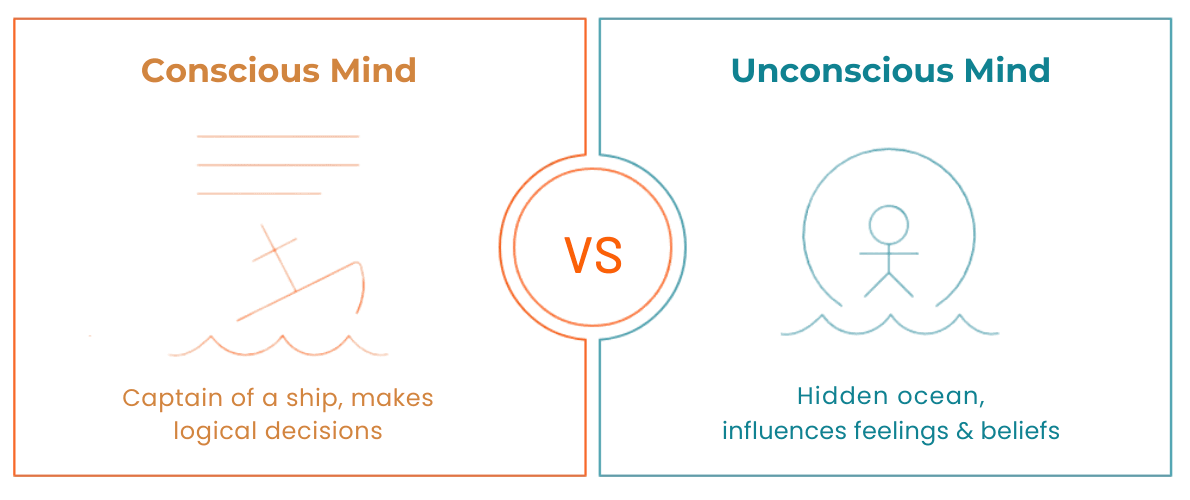
What Causes the Inner Conflict?
Inner conflict can stem from a variety of sources, often pulling us between our desires and our duties. Some of the most common causes include:
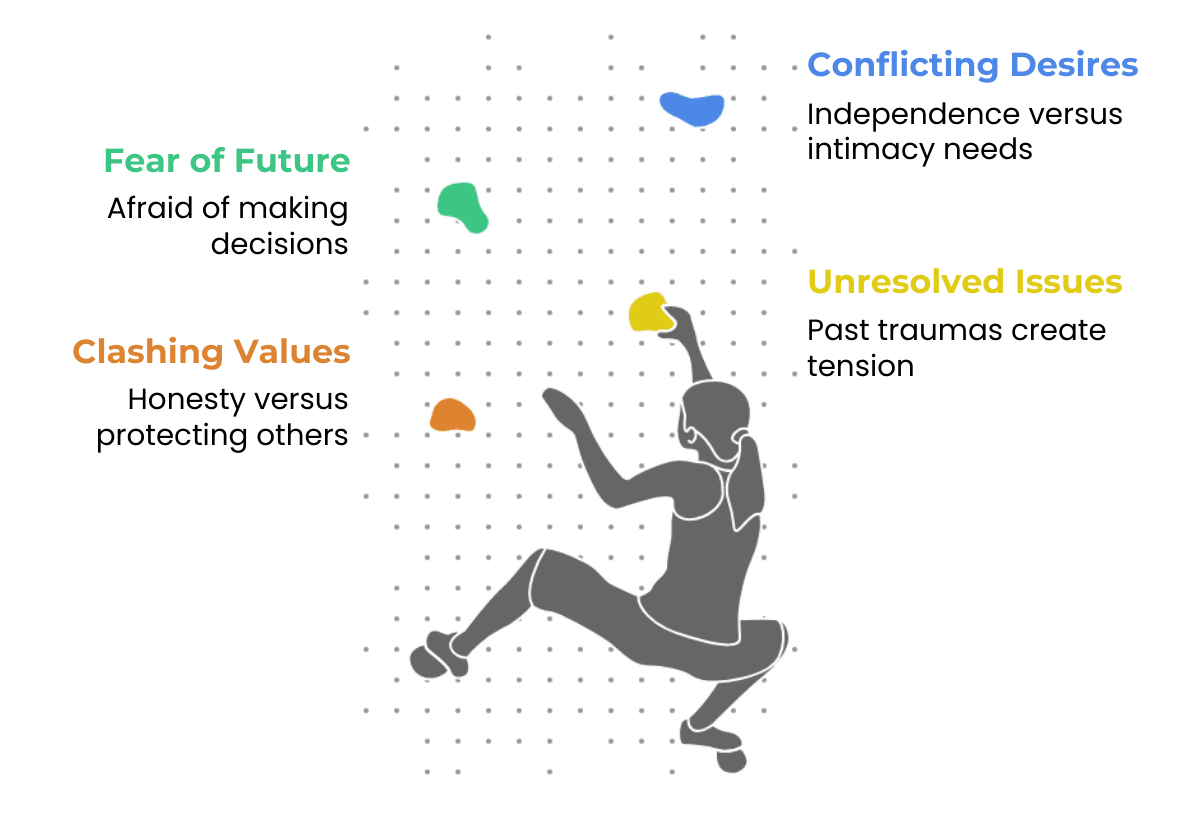
- Clashing Values: You may believe in being honest, but find yourself in a situation where telling the truth could hurt someone you care about.
- Unresolved Past Issues: Old traumas, resentments, or past mistakes can create internal tension that resurfaces in your daily life.
- Fear of the Future: The struggle between wanting to move forward and being afraid of making the wrong decision can leave you paralyzed.
- Conflicting Desires: The battle between a strong desire for personal independence and a deep need for intimacy in a relationship.
The Impact of Inner Conflict
When left unaddressed, this internal struggle can manifest in tangible ways, affecting your mental health and daily life. It often leads to:
- Stress and Anxiety: Constantly being at odds with yourself creates a state of chronic stress, which can lead to feelings of overwhelm and anxiety.
- Indecisiveness and Procrastination: When you can’t reconcile your conflicting feelings, it becomes incredibly difficult to make decisions, leading to a cycle of putting things off.
- Self-Sabotaging Behaviors: This is when you unintentionally undermine your own success or happiness. For example, you might want to succeed at work, but your inner conflict causes you to procrastinate on important projects, ultimately harming your career.
Navigating the Inner Conflict and Finding Peace
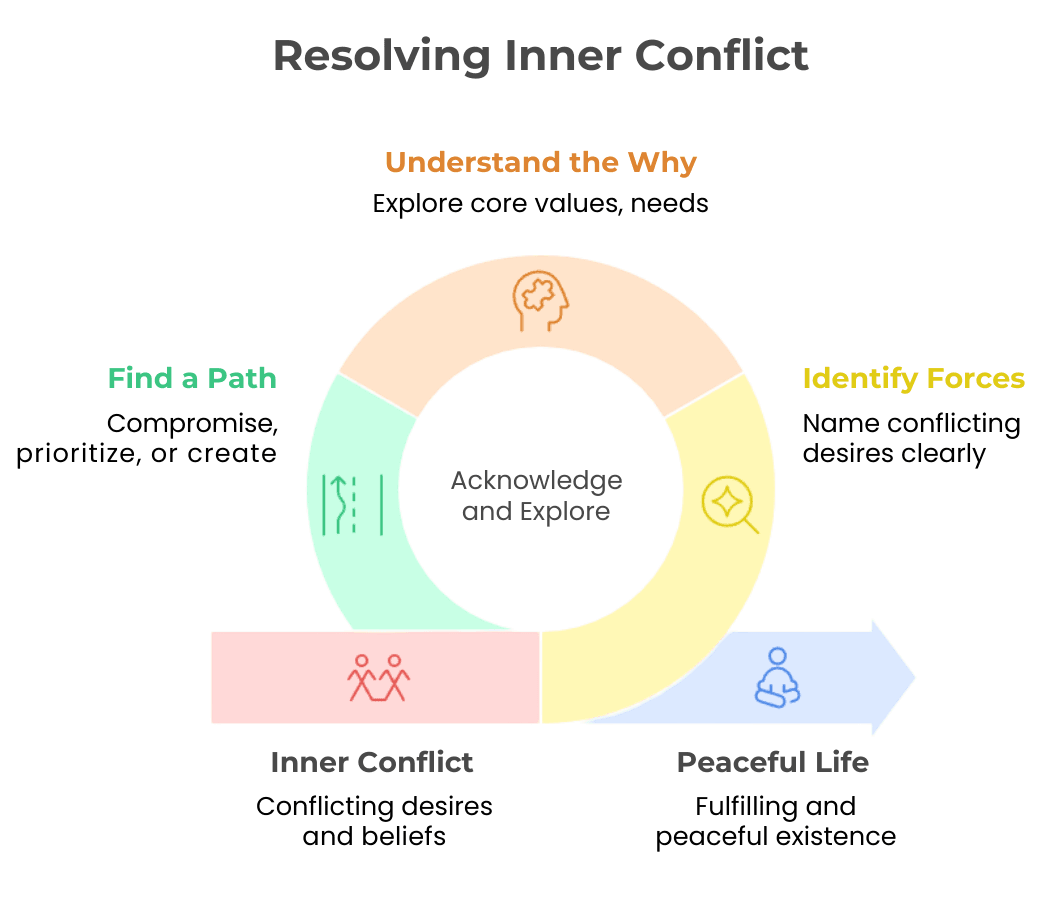
The first and most powerful step toward resolving inner conflict is simply to acknowledge it. By recognizing the internal struggle, you can begin to explore what’s causing it. This process involves:
- Identify the Opposing Forces: What are the two conflicting desires or beliefs at play? Name them clearly.
- Understand the “Why”: Why is each of these forces important to you? What core values or needs do they represent?
- Find a Path Forward: Once you understand the root of the conflict, you can work toward a solution. This might involve compromising, finding a creative third option, or making a conscious decision to prioritize one need over the other.
Remember, you don’t have to navigate this alone. Talking to a therapist or counselor can provide valuable tools and new perspectives to help you understand and resolve these conflicts. By taking the time to address your inner world, you’re not just finding a solution—you’re building a more fulfilling and peaceful life.

